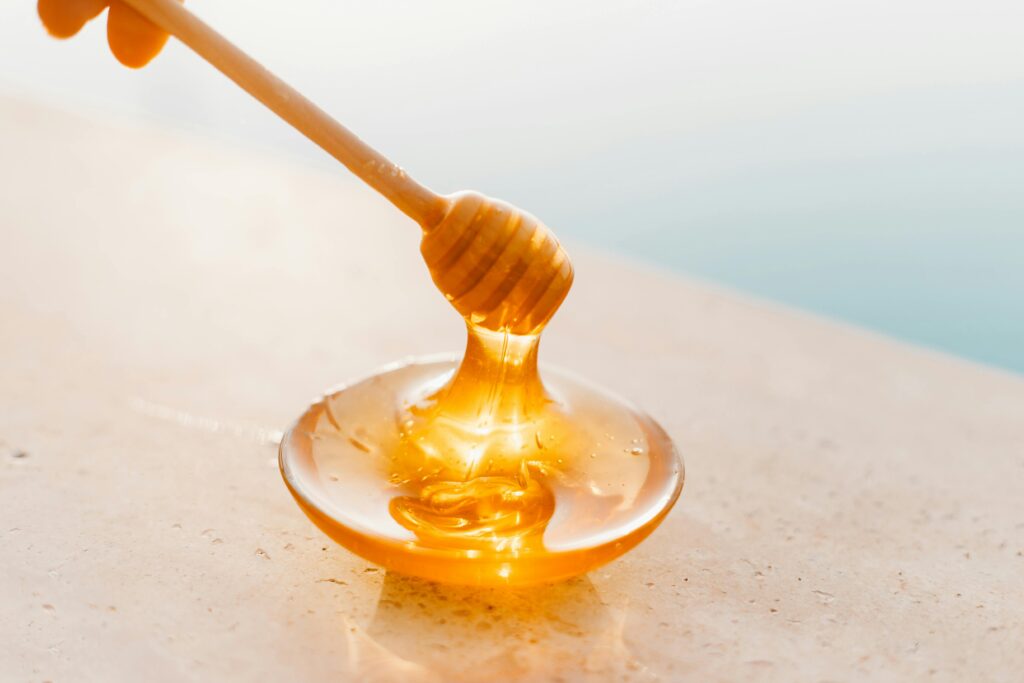🚨 STOP! Don’t use a metal spoon in your honey! It’ll kill the enzymes! 🚨
Ever heard that one before? If you’re into natural living and holistic health, you might have come across this claim. Some people swear that using stainless steel silverware on honey will destroy its powerful enzymes, making it less beneficial—but is this actually true?
Let’s dive into this sticky myth, where it came from, and what science really says.
Where Did This Myth Come From?
Like many health myths, this one seems to stem from a mix of truth and misunderstanding.
💡 Honey is a powerhouse of natural enzymes, including diastase, invertase, glucose oxidase, and catalase. These enzymes help break down sugars, provide antibacterial properties, and contribute to honey’s many health benefits.
Because enzymes are sensitive to environmental factors, people naturally started wondering:
👉 What could damage them?
👉 Could metals be harmful to honey?
👉 If prolonged exposure to metal causes oxidation in some foods, does that mean it affects honey too?
And then the myth was born—that dipping a stainless steel spoon into honey somehow “kills” its enzymes. But let’s set the record straight: this is NOT true.
The Truth: Stainless Steel Does NOT Harm Honey’s Enzymes
Here’s why:
1. Stainless Steel Is Non-Reactive
Unlike some metals that oxidize or react with food (like copper or aluminum), stainless steel is non-reactive. This means it doesn’t chemically interact with honey or its enzymes.
✅ A quick dip of a stainless steel spoon won’t alter honey’s composition at all.
According to research from Mill Creek Apiary, stainless steel utensils do not harm the enzymes or beneficial properties of honey. The real threats to honey’s quality are prolonged exposure to heat and moisture—not the utensils used for serving (Mill Creek Apiary).
2. Heat, Not Metal, Is What Damages Honey’s Enzymes
If you want to worry about something affecting your honey’s enzymes, heat is the real culprit—not a spoon.
🔬 Scientific studies show that honey enzymes begin to degrade when exposed to temperatures above 104°F (40°C) and are significantly damaged when heated beyond 140°F (60°C). That’s why raw, unpasteurized honey is always best—once honey is heated for commercial processing, many of its beneficial properties are compromised.
3. Prolonged Contact with Certain Metals Might Cause Oxidation—But Not Stainless Steel
There is some truth to the idea that metal and honey don’t always mix well. If honey is left in prolonged contact with copper, iron, or aluminum, it can cause oxidation and lead to slight chemical changes.
However, this is not the case with stainless steel. It’s food-safe, non-corrosive, and used in almost every professional kitchen for a reason!
✅ Using a stainless steel spoon for a few seconds won’t hurt your honey in any way.
So, What’s the Best Way to Scoop Honey?
While stainless steel silverware is perfectly fine to use, some people still prefer alternative tools like:
🍯 Wooden honey dippers – Traditional and great for drizzling honey without making a mess.
🍯 Ceramic or silicone spoons – Safe, non-reactive, and easy to clean.
But let’s be real—if you’re standing in your kitchen, reaching for honey to add to your tea or drizzle on your toast, and the closest thing is a stainless steel spoon—go for it!
The Bottom Lin
🚫 The idea that stainless steel kills honey’s enzymes is a myth.
✅ Honey’s biggest enemies are heat and moisture—not your silverware.
🔥 If you want to preserve honey’s benefits, store it properly and avoid overheating it. So, spread the word, share the science, and keep enjoying your honey—no matter what spoon you use!

